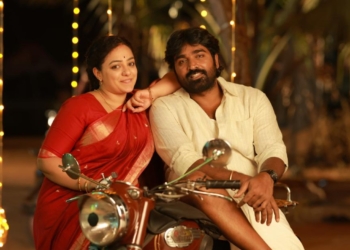Capcom’s latest installment in the Monster Hunter series, Monster Hunter Wilds, is proving to be an unstoppable force on PC. Despite technical hiccups and complaints about performance, the game’s launch numbers tell a different story—one of massive success and shifting industry trends.
A Record-Breaking PC Launch
Monster Hunter Wilds debuted with nearly 1.2 million concurrent players on Steam, making it Capcom’s most successful launch ever. That figure alone highlights how crucial PC players have become to the publisher’s bottom line. But the sales data makes it even clearer.
According to Circana, an industry analytics firm, Wilds was the best-selling game of February 2025 across all platforms. Even more staggering? The game outsold its predecessor, Monster Hunter Rise, by more than double—a significant leap for a franchise that has historically found its strongest foothold on consoles.

PC Over Consoles? The Sales Numbers Speak
While the game is available on multiple platforms, it appears that PC players were the ones driving its success. Steam accounted for more than half of the total sales, despite well-documented performance issues and the game’s near-unplayable state on Steam Deck.
That’s a surprising shift in an industry where consoles have traditionally led the charge. Even in the face of technical struggles, PC gamers didn’t hesitate to jump in—perhaps an indicator that the audience is more willing to tolerate launch-day woes if the game itself is compelling enough.
PC’s Market Share Is Bigger Than Ever
Monster Hunter Wilds isn’t alone in this trend. February’s biggest releases—including Kingdom Come Deliverance 2 and Civilization 7—also saw a disproportionate amount of success on PC compared to their console counterparts.
For years, PC has been creeping toward dominance. The shift has accelerated as major console exclusives like Spider-Man 2 and Halo Infinite have made their way to PC, sometimes even on day one. The appeal is undeniable: while the cost of a high-end rig is steep, the sheer volume of games available—spanning decades—makes it a long-term investment that many gamers are willing to make.
Consoles Are Still Holding On, But for How Long?
That doesn’t mean consoles are out of the picture just yet. Big players like Take-Two Interactive have acknowledged PC’s rising importance, but some major titles still prioritize consoles. Case in point: GTA 6, one of the most anticipated games of the decade, won’t be launching on PC alongside its console versions. Rockstar Games has a history of delaying its PC ports, and given how long it took them to roll out PS5 and Xbox Series X enhancements for Grand Theft Auto V, this move isn’t all that shocking.
Nintendo, too, remains an outlier. While the broader industry is leaning toward PC, the Switch has carved out a unique space that isn’t necessarily affected by the same trends. Exclusive franchises like The Legend of Zelda and Super Mario still draw massive audiences, making Nintendo the last true stronghold in a market where console loyalty is starting to wane.
The Future of Gaming Looks Different
With PC taking a front seat in software sales and player engagement, the industry is entering a new era. Console gaming isn’t disappearing overnight, but the dominance it once enjoyed is undeniably slipping. For publishers and developers, the message is clear: ignoring PC would be a costly mistake.
As the next wave of blockbuster games arrives, expect more day-one PC releases, more optimized ports, and—hopefully—fewer performance nightmares. If Monster Hunter Wilds’ launch is any indication, PC gamers are more than ready to devour whatever comes their way.



















